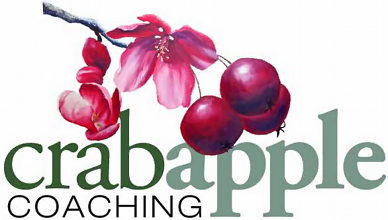Retirement Stats, Studies, and Stuff
Guest Writer:
Bret Maukonen, MDiv, MEd
The Master WorkGroup
I’m pretty confident that I can tell when a person is happy. How about you? The smile, a laugh, humming or singing a song – these are outward signs that suggest a person is in a happy moment. But would you be able to tell when a person is content? I find that more difficult to read in others and, in reality, I have to be far more reflective to see it within myself.
Spending some time considering contentment may just make a difference in how we enjoy our retirement.
In my research, I’ve found ‘contentment’ tacked on to some titles of books and articles that were actually about happiness. I’ve looked into a lot of books on psychology and online libraries only to find that there is nothing or very little actually being said about contentment. Is it, then, so unimportant?
As I have tracked this topic, what has become clear is that the main contributors approach it with a view to their own spiritual development. Considering that, while happiness is clearly an emotion or a state of mind affected mostly by circumstances, contentment is better considered as a state of being. It is something deeper and different and, as I have discovered, it does not depend on circumstances to sustain it.
I guess if I were to use an image of this, it would be the sight of a fast flowing stream. The waters on the surface bubble and swirl (happiness) when they pass over boulders (circumstances) while the deeper water (contentment) moves on steadily around and bypassing those same boulders without any apparent disturbance.
With that image in mind, are you able to make that distinction between being happy and being content?
Models of contentment
Based on my readings and research, and from conversations with people who work in demanding and sometimes under-appreciated roles, I’ve made some observations about contentment. It appears that people who indicate that they are content have clarity about their core values and beliefs. They have a sense of purpose (or calling) that they are committed to fulfill. The sense of purpose is usually something about which they are passionate. These people know who they are and what they care about. They’ve learned to be content.
A person will realize contentment when her activities and engagements (“doing”) coincide with the “being” part (core values, calling, commitment). You’ll notice that I haven’t said anything about circumstances. That’s because the data I’ve gathered show people declaring their contentment with life in spite of challenges and difficult passages, in spite of adverse circumstances. When things are good, they are happy about that, and even content. But contentment continues even when things are not so good.
Any danger of complacency?
One concern that has been voiced is that contentment might lead to complacency (like, “I’m content and can stop trying now.”) Is this real contentment or is it just some type of casual complacency? Real contentment keeps people motivated to achieve and keeps their actions aligned with what is held as most important in life. I know of many people who have described their state as being one of contentment yet who are highly engaged in personal development and advancing their goals. So I don’t give particular credence to concerns that contentment will undermine achievement.
Old goals in a new life
Goals that we might have set in our younger years were not likely to include much conscious consideration of personal contentment. I wonder if we set some goals later in life that are more sensitive to personal contentment, even if done at an unconscious level? The transition to retirement can be a challenging time. For so many, life has been significantly influenced by career (“What do I do for a living?”). All of a sudden that external description disappears and I now have to admit that it had been a big part of my identity. Also, the structure of work life is gone and I get up on Monday mornings wondering about a lot of things and realizing more acutely that life is what I make it. I no longer have others structuring my time and making inescapable demands. If my purpose and progress are not as well defined as before, then it falls fully upon me to do something about it.
Tackling contentment
Okay, so what can you do with this? How does your own sense of personal contentment measure up overall? How would you rate contentment within specific aspects of your life? If you want to contact me, I can send a PDF form that helps you rate your level of contentment on a 5-point scale under 20 different aspects of life. I have found it helpful to do some reflective journaling about my sense of personal contentment. Whatever means you choose, the goal would be to begin weighing the importance of contentment in your life.
If it is something that you want to explore in a deeper way, consider these points:
- What are the core values and beliefs that are filling your thoughts and guiding your actions?
- Do you have clarity about your purpose in this phase of your life?
- What evidence is there that you are committed to fulfill that purpose?
- How good is the alignment between your core values, purpose, and commitment and what you are actually doing with your (very valuable) time?
Much as I’m pleased to see happy people, smiling and laughing as they go through their day, what I find deeply satisfying is when I encounter people who are actually content. They may reveal it in something they say, something about being passionate about what they’re doing, or about how they always knew this was a good fit for them, or how it wasn’t until they listened to themselves that they figured out what they were meant to be doing. It all points to true contentment. Thankfully, I’m experiencing more of it in my own life and I expect to see that flow into my retirement.

